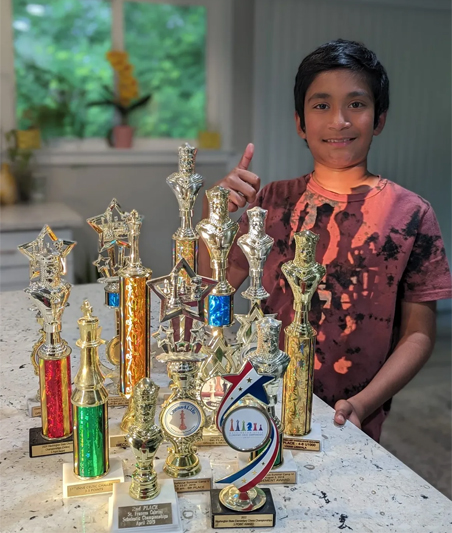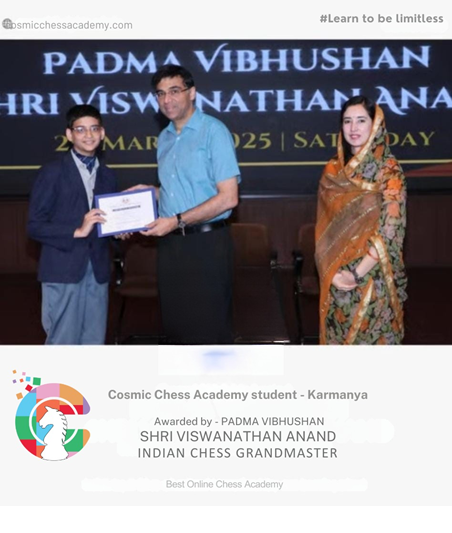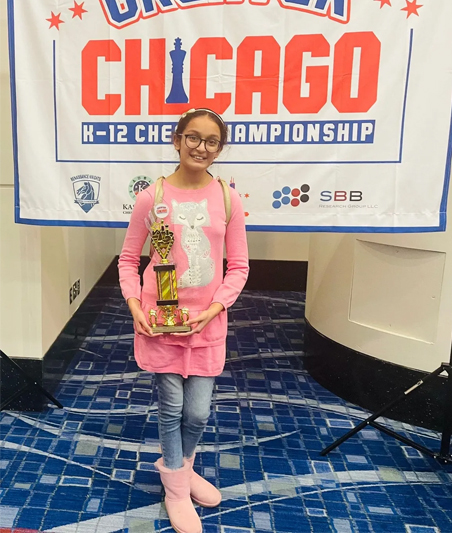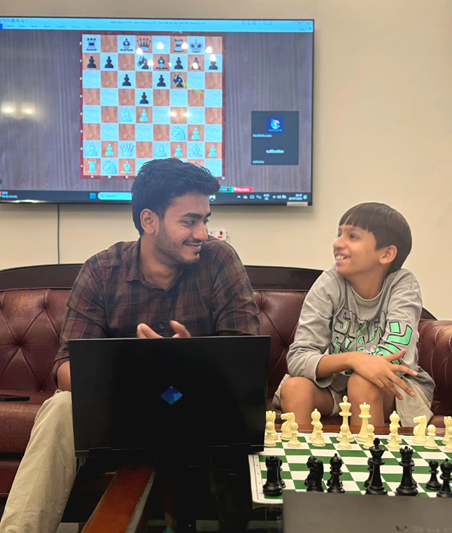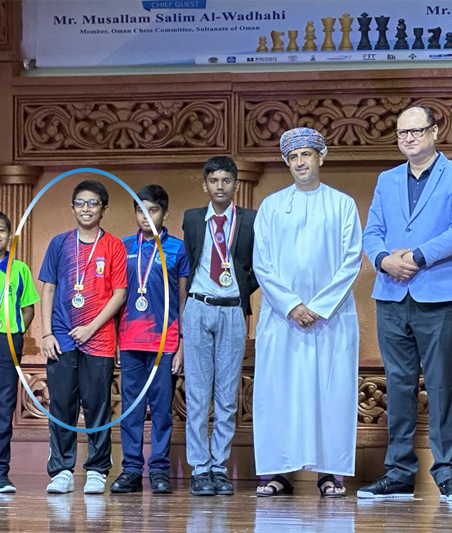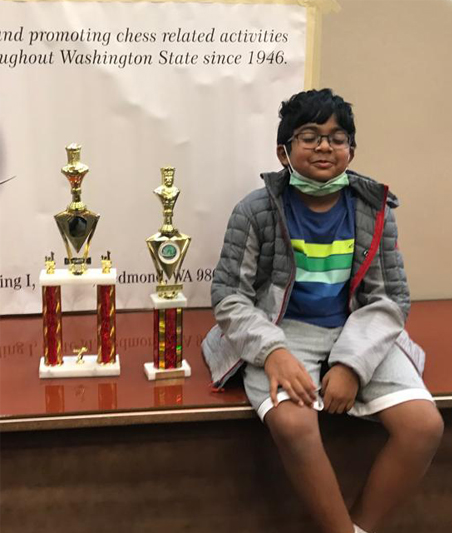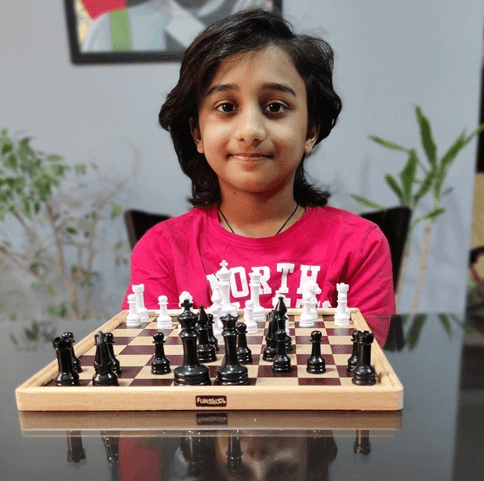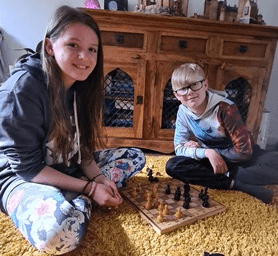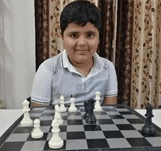-
Chess Board, Pieces and Notation
-
Opening principles
-
Principle of developments
-
Forks, Pins, Double Check, Skewer etc.
-
Checks and threats
-
King safety
-
Strategy (basics)
-
Stalemate
-
Fools Mate and Scholars Mate
-
En-Passant
-
Queen Checkmate
-
Two Rook Checkmate
-
Queen Checkmate ideas
-
Different ways to win and draw the game
-
Basic Opening Principles and implementation)
-
Tactics Awareness
-
Connected Rooks
-
-
-
Online Chess develops vital skills in kids
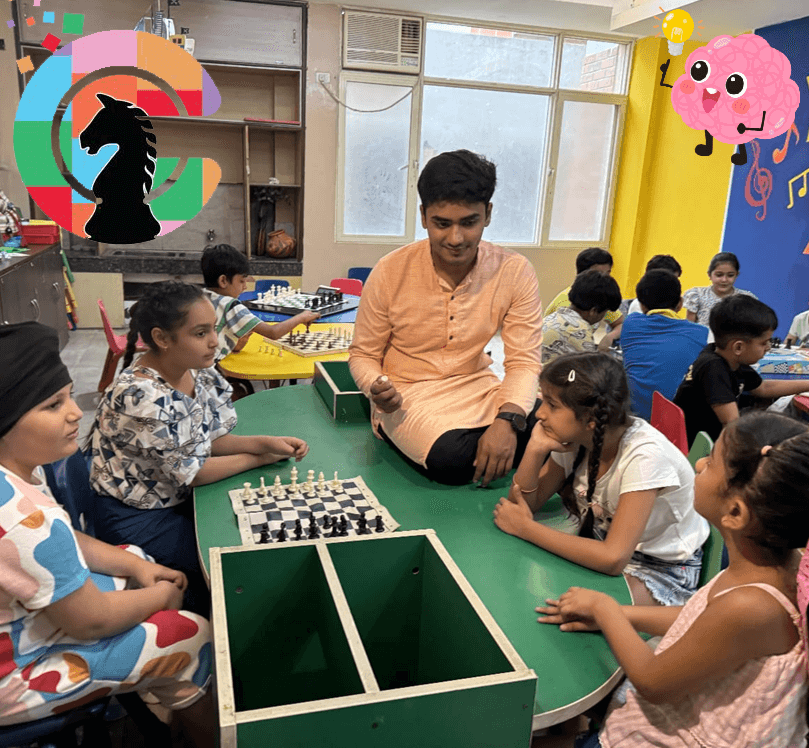
Why Chess for Kids?
Inspiring Young Minds Through the Game of Chess At Cosmic Chess Academy, we believe that chess is more than just a game!
-
Enhanced Creativity
-
Decision-Making Skills
-
Patience & Time Management
-
Increased IQ
-
Improves schoolwork & grades
-
Enhanced Problem-Solving Skills


Explore Courses
-
Imagination in chess
-
Middlegame plans
-
Zugzwang ideas!
-
Opposition and Distant Opposition
-
Bishop vs Knight (Open and closed positions)
-
Learning from the mistake series
-
Playing Sessions with Deep Analysis
-
Smothered Mate, Boden’s Mate, Hook Mate, Arabian Mate, Anastasia’s Mate
-
How to manage Opposite Colour Bishops
-
The Lucena Position
-
The Philidor Position
-
Decoying, Windmill, Mate in 4
-
Combinations in chess
-
The Philidor Position
-
Rook endgames
-
Critical squares
-
Sacrifice
-
Learn from the World champion games series
-
-
Prophylaxis Thinking
-
Static and dynamic advantages and how to play with or against it!
-
Playing Against Different Openings
-
Opening Theory and Novelties
-
Endgame studies!
-
All sorts of pawn structure with modern theory!
-
Initiative and critical points
-
Transition from middle-game to end-game
-
Professional opening repertoire
-
Pawn Endgames
-
Positional Evaluation in complex positions
-
Studies from Grandmaster Games
-
Dynamic Imbalances
-
Middlegame Maneuvering
-
Pattern Recognition
-
Chess Composition and Problem Solving
-
Fortress Creation
-
Tournament Preparation and Psychology
-

Winners at Cosmic Chess

Frequently Asked Questions
Accessibility: Cosmic kids can play anytime, anywhere, against opponents from all over the world. No need to find a physical opponent or travel to a chess club.
Convenience: Kids can play different time controls, analyze games with Cosmic Instructors , utilize study tools like training tactics and opening explorers.
Practice efficiency: Cosmic kids can play more games in less time, analyze them instantly, and track progress through ratings and statistics.
Age 5: We believe that children this young lack the abstract thinking and attention span necessary to grasp the game's complexities. and chess cycle goes like -
Ages 5-7: Memory and information processing skills develop, but focus might still be an issue.
Ages 8-15: This is often considered the sweet spot, as children have the cognitive skills and longer attention spans needed to learn and enjoy the game.
Safety and security: We protect children's online privacy and ensure a safe learning environment
Accessibility: The academy offer affordable pricing options and flexible schedules to accommodate different family needs
Progress tracking: we share with parents ability to track a child's progress and receive feedback from instructors. we find it is essential for monitoring their development and identifying areas for improvement!
Age-appropriateness: The curriculum is designed specifically for the child's age group, considering their cognitive development and attention span
Structured learning: we have a clear and well-structured learning path with progressive difficulty levels we feel it is essential to keep children engaged and motivated!
Yes! In Cosmic Chess Academy we kept everything professional, Kid will earn a Cosmic Chess Academy, level completion certificate!
Yes

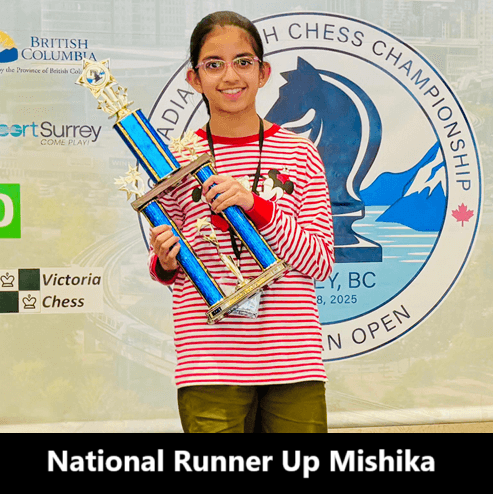



 FIDE-Rated Trainers Here!
FIDE-Rated Trainers Here!
